When you decide to finally move forward with your commercial construction project, you might be eager to break ground. But before you can start digging, demolishing, or pouring, you need to spend time planning. This planning period is called the pre-construction phase, and it’s critical to a successful project.
Keep reading to learn:
- What pre-construction is
- How pre-construction planning fits into your overall project timeline
- What happens during your pre-construction meetings
- Why pre-construction consulting is so important
Defining the Pre-Construction Planning Phase
As its name implies, pre-construction is the project phase that happens before you officially start building or renovating a new space. The purpose of pre-construction planning is to get everything in place, from permits to material options, so your subcontractors can move forward without a hitch.
It may sound simple, but pre-construction planning typically involves several teams and can take anywhere from a few weeks to a few months, depending on the scope of the project. One wrong move or missed step can cause delays later, so it’s crucial not to rush through the pre-construction process.
Other Stages of a Commercial Construction Project
Pre-construction is one of three main phases in a commercial construction project. Once completed, you can move forward with construction and post-construction. Here’s what happens during both stages.
Construction
When construction starts, whether that involves a wrecking ball or an excavator, you have officially moved from pre-construction to construction. This phase continues until your construction team completes your project—or finishes enough tasks to make your building usable for its intended purpose.
Post-Construction
Once your subcontractors complete construction (or give you the go-ahead to start using your space), the post-construction phase begins. Your project team cleans up the construction site, removes equipment, and delivers a close-out package detailing your materials, warranties, and any other information you may need.
What Happens During Pre-Construction Meetings?
Pre-construction is usually the most involved phase of a construction project. During these critical weeks, you’ll accomplish the following:
Define Project Scope
The first step in pre-construction is to determine the scope of your project. What is your objective, and what services do you need to get there? Do you have a specific timeline or budget in mind? Will your subcontractor team tear down a building and construct a new space from scratch, or does your current space need a facelift?
Determining the extent of your project will help your project team create realistic goals and find the people, materials, and permits needed to meet your expectations within budget.
Select Project Team
During the pre-construction phase, you need to select at least a few members of your project team, including architects and engineers. Many project owners simplify team selection by partnering with a design-build contractor immediately. Then, they entrust the contractor to find the most suitable design team and subcontractors.
Once you have a team in place, you can move forward with the logistics of your project, such as drawing up blueprints, submitting plans to your city, and calculating a budget.
Not sure if you should hire a general contractor to handle the pre-construction planning phase? Learn the benefits of involving a reputable construction firm from day one.
Perform Cost Estimates
Creating a budget at the beginning of your project helps ensure you won’t be surprised by unexpected costs later. Your estimator will put together a list of expenses, including:
- Labor
- Demolition work
- Construction services
- Plumbing, electrical, and HVAC
- Materials
- Permits and other fees
Your general contractor can also perform cost-value engineering, which involves creating a separate budget with alternative materials that provide the same functionality and look for a lower cost.
Create Plans
After you determine the project scope and your overall goals, your design team can begin creating plans. If you already have a general contractor, they can assist the design team in ensuring the plans won’t cause any roadblocks for your subcontractors during construction and point out areas to save money.
Secure Permits
You can’t begin construction without the proper permits from your city. Your general contractor should be familiar with local building codes and requirements, and they can handle the permit application process on your behalf.
Pick Out Materials
Now, more than ever, it’s crucial to select and order materials long before construction begins. That’s because supply chain shortages have made certain construction supplies difficult to procure. While your team may not be able to avoid delays altogether, they can get a head start by proactively finding materials and alternatives, so your construction manager doesn’t have to scramble after the project has already begun
The Importance of Pre-Construction Consulting
Feeling like you’re waiting around for several weeks before breaking ground can be frustrating. But a little patience at the beginning of your project can go a long way. When you take the time to get every team member on the same page, you can reduce and eliminate significant delays later on, saving time when it matters most.
Working with a trustworthy general contractor during pre-construction can result in:
- Lower project costs
- Faster timelines and fewer delays
- Better collaboration between design and construction teams
If you want your project to move forward as smoothly as possible, don’t underestimate the power of pre-construction.









